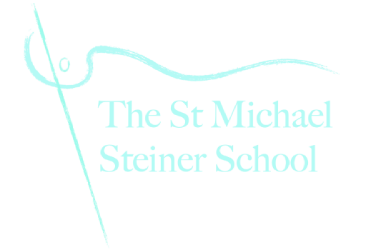The St Michael High School
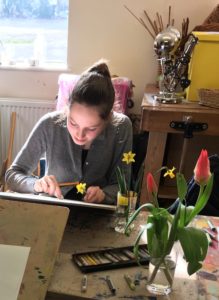 The St Michael High School was founded in 2012 – the first Steiner Waldorf Upper School in London since 1942. High School students are aged between 14 and18; they enter Class 9 in their fifteenth year. In the High School, the students no longer have Class Teachers, but Class Guardians and personal tutors who advise and counsel them. Lessons are taught by subject specialists.
The St Michael High School was founded in 2012 – the first Steiner Waldorf Upper School in London since 1942. High School students are aged between 14 and18; they enter Class 9 in their fifteenth year. In the High School, the students no longer have Class Teachers, but Class Guardians and personal tutors who advise and counsel them. Lessons are taught by subject specialists.
We offer a very broad curriculum based on our study of adolescent development in the context of our students’ own individual aspirations and interests, and the needs of society. However, the world in which they will play their part does not yet exist, so it makes no sense to prepare our children for life as it is now. We believe that the early specialisation, prescriptive, exam-led teaching and emphasis on memorising, that characterise mainstream education in this country, will not develop in our young people the range of skills and personal qualities they will need to meet the challenges of adult life in the 21st century.
Instead, we aim to help our students develop skills that will enable them to meet whatever may come towards them in the future: independence, resourcefulness, responsibility, flexibility, initiative, an active interest in the world and in learning as a lifelong activity. With these things in mind, the programme has a balance of experiential, practical and intellectual learning; studio and performing arts, crafts, sciences, mathematics, languages and humanities are integrated across the curriculum, through themes that relate to each other, so that the students experience their education as a cohesive whole and understand how things are connected.
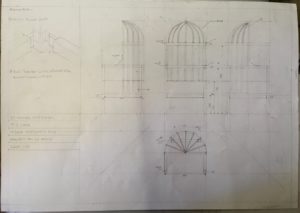 Teaching staff in the High School are qualified and experienced subject specialists who also teach in the Lower and Middle School, and so have an active understanding of their subjects throughout the school. Other subjects are taught by regular visiting specialists who also teach in other Steiner Waldorf schools around the country. Because we do not have a head teacher, but work collectively in the planning, development and administration of the school, this level of colleagueship, both within our school and in the wider Steiner Waldorf movement, is vital.
Teaching staff in the High School are qualified and experienced subject specialists who also teach in the Lower and Middle School, and so have an active understanding of their subjects throughout the school. Other subjects are taught by regular visiting specialists who also teach in other Steiner Waldorf schools around the country. Because we do not have a head teacher, but work collectively in the planning, development and administration of the school, this level of colleagueship, both within our school and in the wider Steiner Waldorf movement, is vital.
We are currently inviting applications from students for entry to the forthcoming September Class 9 (approx age 15) and Class 10 (approx age 16).
We do not usually admit students to Class 11 (approx age 17) and 12 (approx age 18) unless they have come from other Steiner Waldorf schools.
Timetable
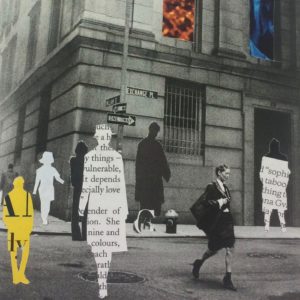 Before lunch the timetable is organised in two approximately 2-hour periods each day, with the intention that most subjects are taught in intensive blocks that change every 3 – 5 weeks, so that students focus on two subjects at a time. The afternoon timetable is divided into individual weekly lessons such as Choir, Orchestra, Art, Craft, and PE.
Before lunch the timetable is organised in two approximately 2-hour periods each day, with the intention that most subjects are taught in intensive blocks that change every 3 – 5 weeks, so that students focus on two subjects at a time. The afternoon timetable is divided into individual weekly lessons such as Choir, Orchestra, Art, Craft, and PE.
In Classes 9 and 10, there is a course of compulsory Main Lessons for all students throughout the year, supported by regular weekly lessons in Global Issues and P.E. In addition, we offer modules in a variety of studio and performing arts and crafts. Sometimes, students will be able to choose from two options running concurrently, but if the module specifically supports the current Main Lesson, it will be compulsory. There is also a requirement, in order to keep the curriculum broad at this stage, that all students take at least one movement module, one craft module and one studio arts module over the year.
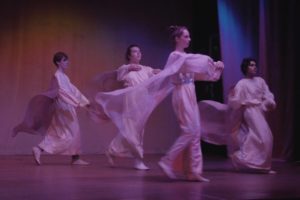 Midway through Class 10, and then again in Class 11, students are consulted about their hopes and plans for the future. Art and craft blocks are planned in consultation with them and can include building, eurythmy, dance, music, drama, pottery, sculpture, clay modelling, dressmaking and pattern cutting, woodcarving, joinery, copper work, blacksmithing, outdoor curriculum, jewellery, basketry, painting, collage, drawing, printing, film and photography.
Midway through Class 10, and then again in Class 11, students are consulted about their hopes and plans for the future. Art and craft blocks are planned in consultation with them and can include building, eurythmy, dance, music, drama, pottery, sculpture, clay modelling, dressmaking and pattern cutting, woodcarving, joinery, copper work, blacksmithing, outdoor curriculum, jewellery, basketry, painting, collage, drawing, printing, film and photography.
The projects undertaken in these blocks teach the students a myriad of skills and involve them in process, something that is slowly being eradicated from our lives as more and more is available instantly, on demand, at the push of a button or click of a mouse. The daily development and following-through of practical projects from the initial idea, through the research and development to the finished product, including reviewing, recording, changing, making mistakes, understanding what went wrong, trying things out, putting things right, even scrapping things and starting again sometimes, is one of the most valuable experiences we can give our students, and one that makes our school unique. It is the experience of process and the practical application of transferable skills that makes these blocks so important for future scientists, mathematicians and engineers as much as for artists, and, we believe, more than justifies the time devoted to them in our school.
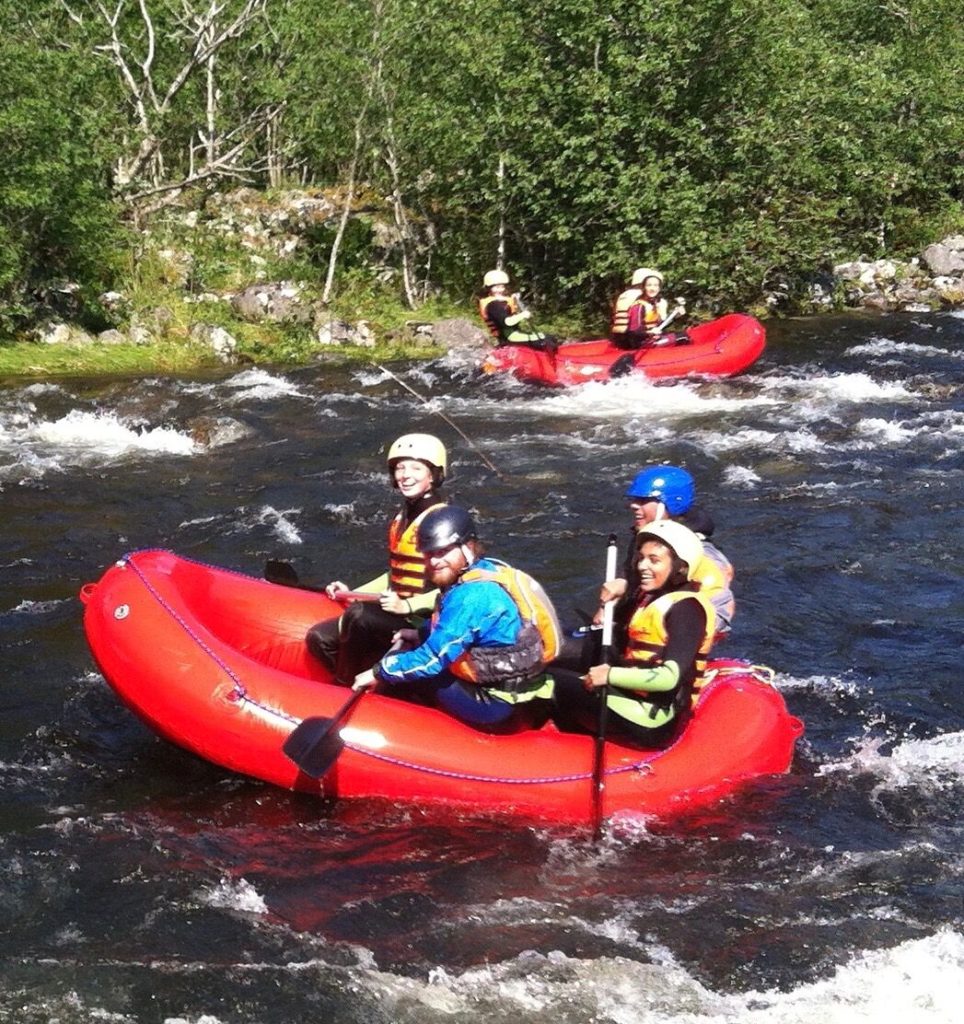 There is an increasing number of optional Main Lessons and elective arts, crafts and supplementary lessons in Classes 11 and 12, so that students can begin to focus on their areas of particular interest. Some compulsory Main Lessons continue, and students must choose at least one subject from each of the core CSE (Certificate of Steiner Education) areas at each level (see below).
There is an increasing number of optional Main Lessons and elective arts, crafts and supplementary lessons in Classes 11 and 12, so that students can begin to focus on their areas of particular interest. Some compulsory Main Lessons continue, and students must choose at least one subject from each of the core CSE (Certificate of Steiner Education) areas at each level (see below).
In Class 11, all students undertake a 2-week work experience placement. These placements have included assisting a theatre lighting technician, working in a hospital, an advertising agency, and a health food company.
In Class 12, the students choose 3 areas of particular specialisation in addition to the compulsory blocks, and undertake a year-long personal project as well as a major theatrical production.
In Class 9 there is the possibility of student exchanges for those interested in improving their French, German, Italian or Spanish. Students from other countries also often visit and study with us for a term at a time.
Assessment
The St Michael High School offers the Certificate of Steiner Education (CSE), which assesses students at three levels, in Classes 10, 11 and 12.
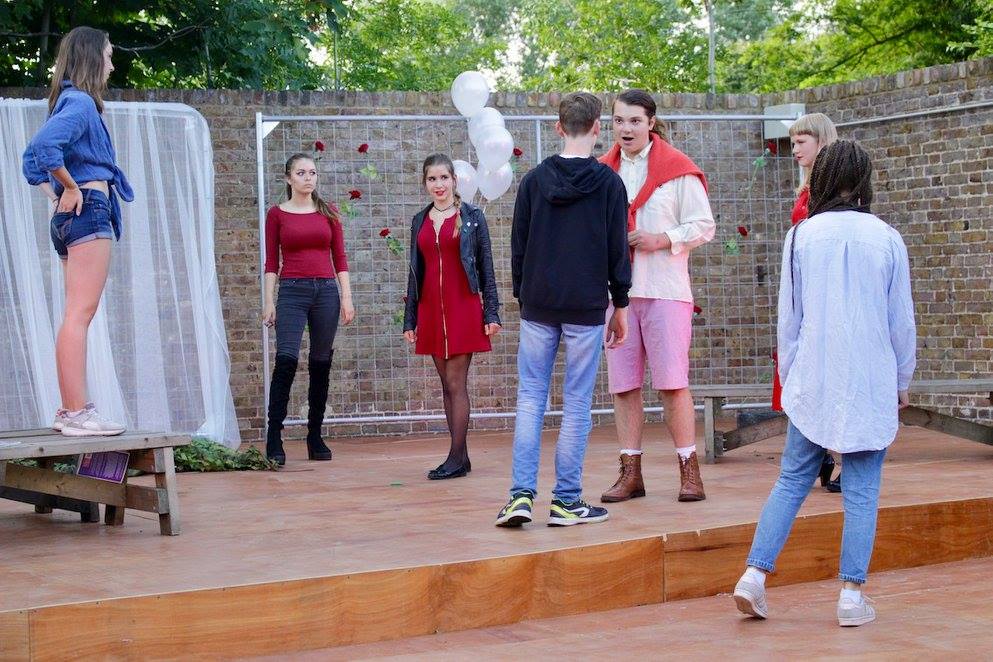 The Certificate of Steiner Education was developed in New Zealand and is externally moderated there by the Steiner Education Development Trust (SEDT). It is certified by the New Zealand Qualifications Authority (NZQA) and sits on the New Zealand Qualifications Framework (NZQF) along with the national school-leaving certificate. CSE is licensed by the NZQA for offshore delivery and has been offered internationally since 2013. At level 3, with University Entrance levels in Maths and English, the CSE provides Steiner Waldorf students with a graded certificate and Record of Achievement that is valid for university entrance in the UK, Europe and other countries that are signatories to the Lisbon Recognition Agreement.
The Certificate of Steiner Education was developed in New Zealand and is externally moderated there by the Steiner Education Development Trust (SEDT). It is certified by the New Zealand Qualifications Authority (NZQA) and sits on the New Zealand Qualifications Framework (NZQF) along with the national school-leaving certificate. CSE is licensed by the NZQA for offshore delivery and has been offered internationally since 2013. At level 3, with University Entrance levels in Maths and English, the CSE provides Steiner Waldorf students with a graded certificate and Record of Achievement that is valid for university entrance in the UK, Europe and other countries that are signatories to the Lisbon Recognition Agreement.
The students are assessed throughout the three years in a variety of ways including essays, oral presentations, performances, demonstrations, interviews, portfolios, products, reports and tests.
As part of the Level 3 certificate, Class 12 students undertake an extended personal project of their own choosing that continues throughout the year and culminates in an exhibition and public presentation.
Although universities in the UK have the freedom to accept or reject students regardless of their qualifications, Class 12 graduates with CSE at Level 3 from the St Michael High School have so far been 100% successful in gaining places at the universities of their choice.
Details of the High School curriculum and its assessment are available in our High School Course Directory, located in the right-hand side bar.
